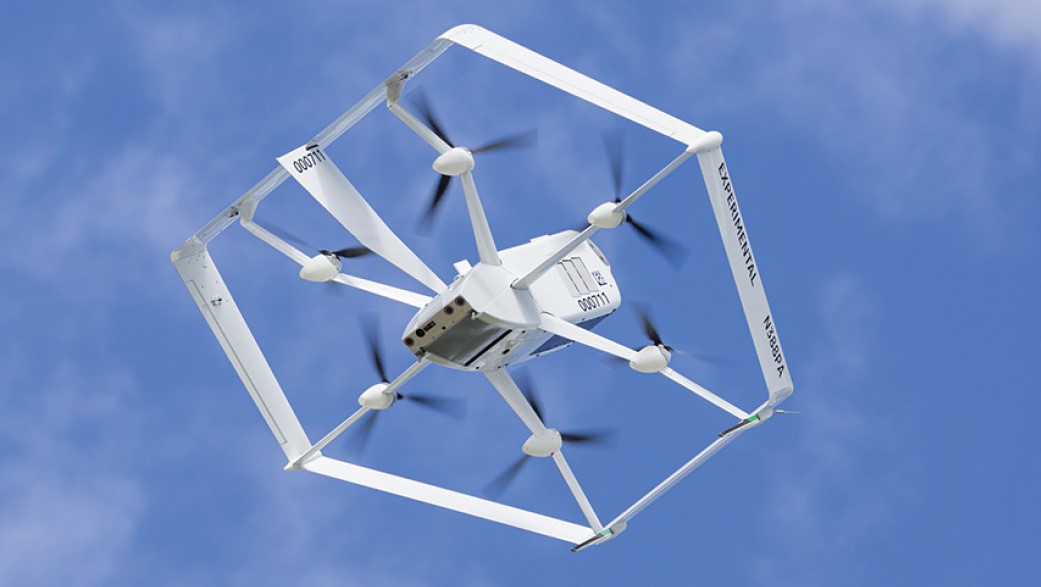Amazon's delivery drones to launch in California this year
The aim is to deliver eligible items within an hour.

Amazon customers in Lockeford, California, will be the first to get a taste of our future convenience dystopia. Pending final regulatory approval, Amazon says it will begin delivering packages by drone later this year (thanks, BBC).
The online behemoth has been talking about drone technology for many years, and shown various prototypes. "The promise of drone delivery has often felt like science fiction," reads Amazon's blogpost announcing the news. "We’ve been working for almost a decade to make it a reality."
Amazon says the challenge it set itself was thus: "How do you get items to customers quickly, cost-effectively, and—most importantly—safely, in less than an hour? And how do you do it in a way that can scale?"
The company reckons it has finally cracked it, and Lockeford will be the test bed. It says that the feedback gathered from this period and the residents who use it will be crucial, and that it will be fully co-operating with the Federal Aviation Administration as well as Lockeford officialdom.
Lockeford has a population of about 4,000 people, so the question of whether it scales may well be an interesting one, but Amazon is at pains to emphasise the technology of its drones and their sensors.
"We designed our sense-and-avoid system for two main scenarios: to be safe when in transit, and to be safe when approaching the ground [...] our drone can identify a static object in its path, like a chimney. It can also detect moving objects on the horizon, like other aircraft, even when it’s hard for people to see them.
"As our drone descends to deliver the package into a customer’s backyard, the drone ensures that there’s a small area around the delivery location that’s clear of any people, animals, or other obstacles."
The biggest gaming news, reviews and hardware deals
Keep up to date with the most important stories and the best deals, as picked by the PC Gamer team.
Jeff Bezos first promised drones in 2013, and said they'd be operating by 2018. There have obviously been setbacks along the way, as well as successful tests it should be said, but it looks like we may soon have skies full of little metal insects, carrying their precious Prime cargo.

Rich is a games journalist with 15 years' experience, beginning his career on Edge magazine before working for a wide range of outlets, including Ars Technica, Eurogamer, GamesRadar+, Gamespot, the Guardian, IGN, the New Statesman, Polygon, and Vice. He was the editor of Kotaku UK, the UK arm of Kotaku, for three years before joining PC Gamer. He is the author of a Brief History of Video Games, a full history of the medium, which the Midwest Book Review described as "[a] must-read for serious minded game historians and curious video game connoisseurs alike."

